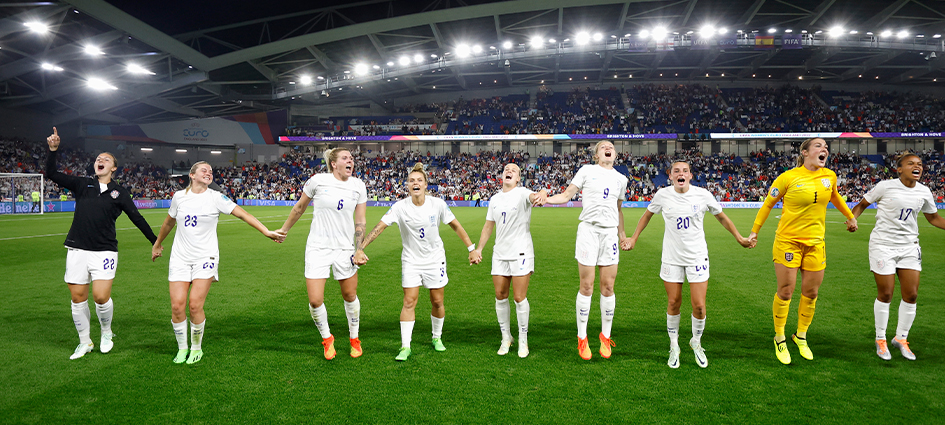
How to design a coaching session around an international tournament
- The Boot Room
- 25 July 2022
International tournaments create a buzz like nothing else. Why not use the excitement to inspire and engage your players at training?
Game management at international tournaments Finding different ways to win plays a crucial role in every international tournament. With various styles of play on show, teams must adapt their approach – often within games – to be successful.
This type of flexible thinking is a skill that grassroots coaches and players need too.
You can use scenarios from tournaments to challenge your team to:
- plan and set problems
- strategise within games
- identify the strengths and weaknesses
- use the information gathered to gain advantages
- be successful and win.

Practice
Get your teams to play as a country and give them a scenario that happened in the tournament. For example, “You’re one-nil down with ten minutes to go, can you take the game to extra-time?”. Then, add in computer-game-inspired elements, and allow players to ‘pause’ the match and change their tactics. This promotes the idea of planning their next move.
When using pauses, allocate a set number per game (e.g. four). This limitation helps your team pay attention to what’s happening. It encourages them to observe the opposition and identify their strengths and weaknesses.
During pauses, offer special rules that your players can introduce. Here are some great examples:
- Cheat - use VAR to cancel out a goal scored by the opposition.
- Challenge - accept a challenge such as playing in a smaller space.
- Clue - ask the coach to help you.
- Change - change an aspect of the practice design to your advantage.
For visibility, write these options on a whiteboard. Once a team has used a rule, they can’t use it again and they can only use one per pause. This means the players must strategise and discuss what to use and when.
It’s worth remembering that winning at a grassroots level isn’t the be-all and end-all. Coaches have a role in helping players think strategically to be successful – and this is an approach that can help.


